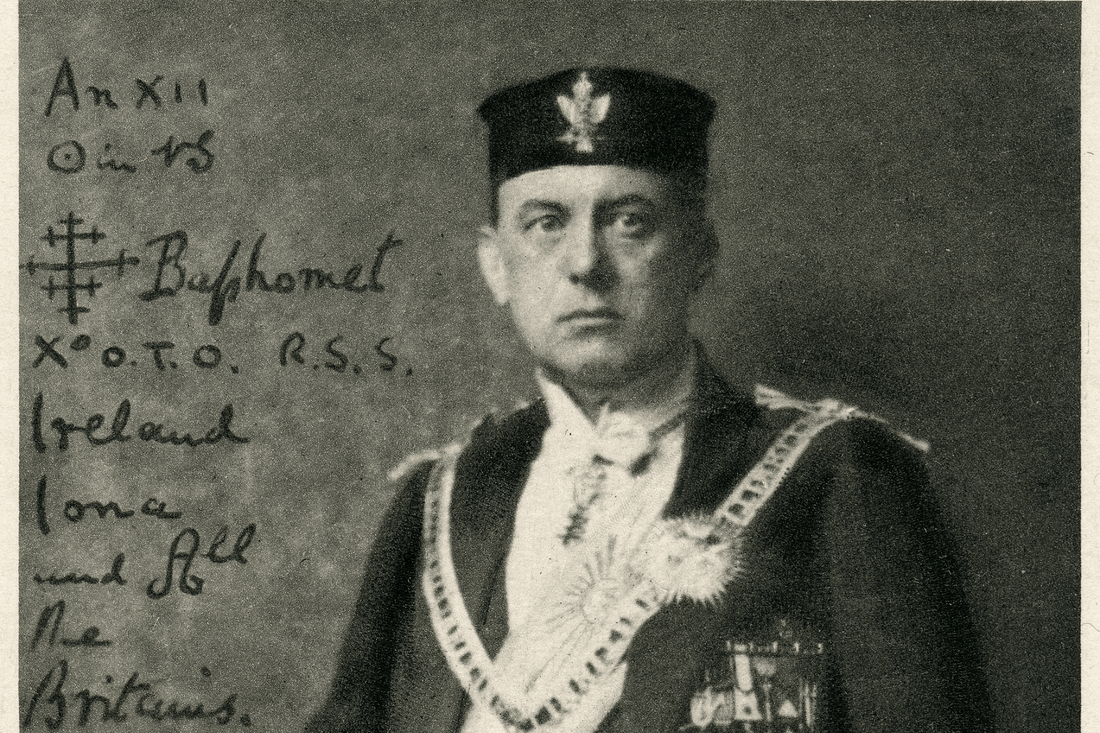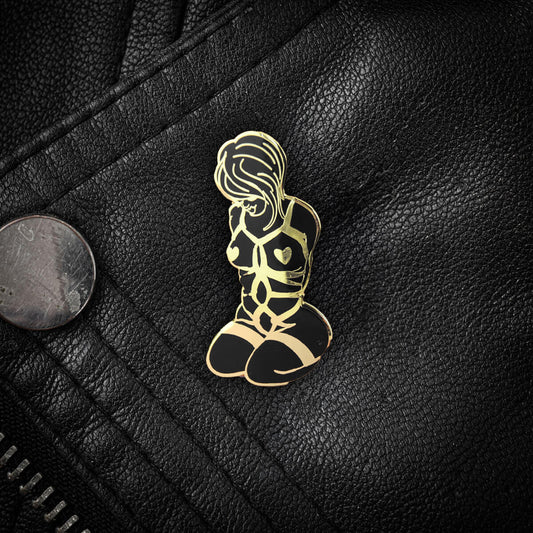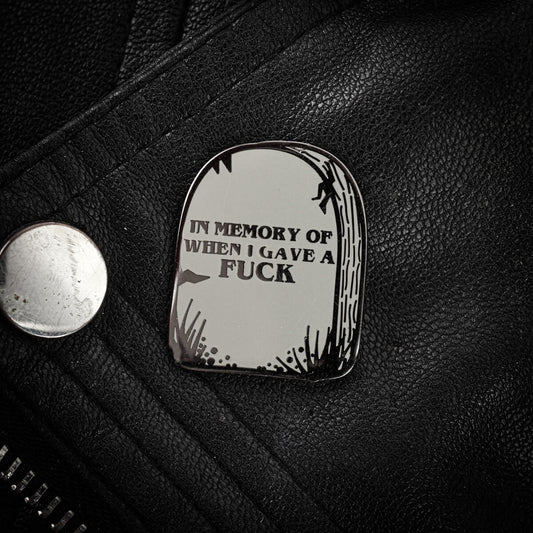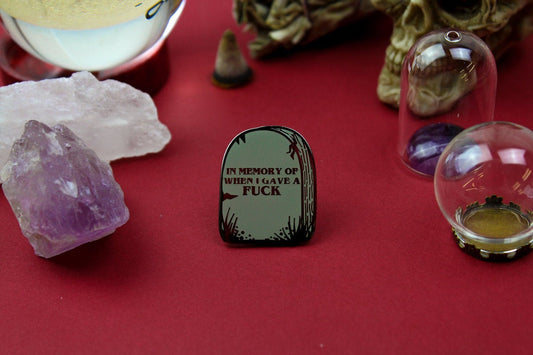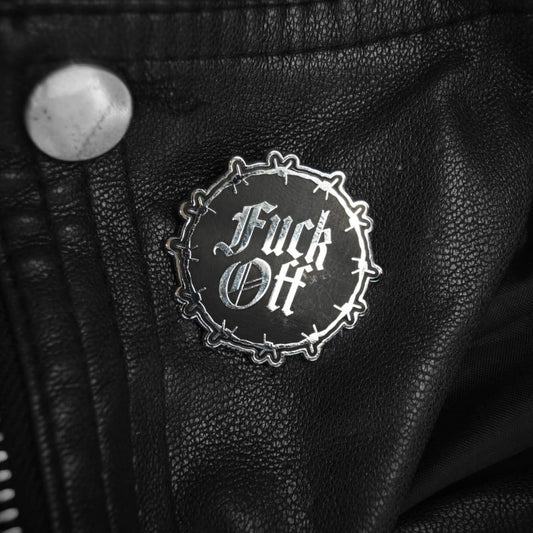Aleister Crowley, a.k.a The Beast 666 and The Wickedest Man Alive, is probably the most famous and enigmatic figure in the annals of occultism. This flamboyant character embarked on a global odyssey, immersing himself in the depths of esoteric knowledge and practice.
Born into a well-off family, his early life hinted at the unconventional path he would later tread. Renowned for his controversial views and unorthodox practices, Crowley dedicated himself to exploring mysticism, ceremonial magic, and alternative spirituality.
His influence extends far beyond his own era, and he has really left his mark on the world of occultism and even popular culture. To truly understand the man behind the monikers, we must look into the complexities and intricacies of his life, exploring beyond the sensationalised portrayals that have come to define him.
Who Was Aleister Crowley and Why Is He Important?
Name anything remotely subversive or esoteric, Crowley had done it (or even started it.) From training as a ceremonial magician which led him to develop the new religious movement Thelema, to attempting to climb K2, Crowley’s achievements span vastly across many interests. Born in 1875, he was a polymath whose life was steeped in the dark side of things and the weird. As an occultist, philosopher, ceremonial magician, poet, painter, novelist, and even a mountaineer, his pursuits were as diverse as they were intense.
However, it was his establishment of the religion of Thelema that truly set him apart. In this role, he identified himself as the prophet chosen to lead humanity into the Æon of Horus during the early 20th century (a red flag if ever there was one). Alongside these spiritual endeavours, Crowley was a prolific writer, sharing his insights and experiences with the world through a wide array of publications. His legacy remains a subject of fascination and controversy in the realms of occultism and beyond.
What Was Crowley's Early Life Like?
Aleister Crowley, born into the opulent setting of Royal Leamington Spa, enjoyed the privileges of a family fortune amassed from the prosperous brewing business known for "Crowley's Alton Ales". His early years were marked by a headstrong nature, earning him the moniker "The Beast" from his mother. School days were spent challenging the religious teachings of his instructors by pointing out biblical inconsistencies. Beyond the classroom, Crowley's interests bloomed in various directions, encompassing chess, poetry, and an affinity for mountain climbing. Later, he pursued higher education at Cambridge University, where, although he didn't secure a degree, he did write a collection of erotic verses (yes, really!), showcasing his diverse intellectual and ‘creative’ pursuits.
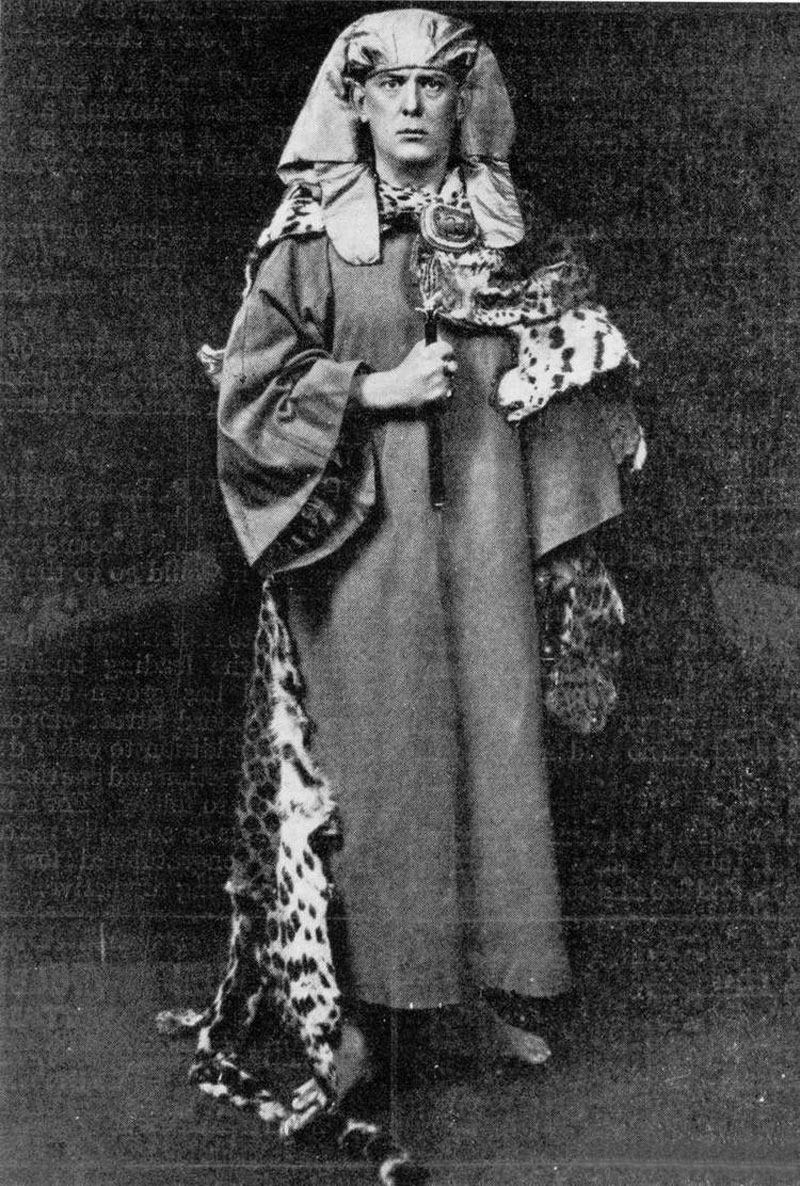
By Unknown author - Used in publicity material for The Rites of Eleusis in 1910 (see deletion discussion).
Photograph originally uploaded to Commons by Commons user Dnaspark99 as w:Commons:File:Aleister Crowley, Golden Dawn.jpg, but now deleted., Public Domain, Link
How Did Crowley Become Involved in the Occult?
Crowley's foray into the occult began when he encountered a chemist in Zermatt, Switzerland, who introduced him to a member of the Hermetic Order of the Golden Dawn, an enigmatic society focused on the exploration of occult Hermeticism and metaphysics. This initial contact led to his initiation in 1898. Subsequently, Crowley immersed himself in the practices of ceremonial magic and the ritualistic use of drugs while residing in London. Later, he settled in Boleskine House, located on the shores of Loch Ness, a place that would later be owned by Led Zeppelin's Jimmy Page. Despite internal conflicts within the group, Crowley ascended through the lower grades of the organisation, even though he was not particularly well-liked by some of its members due to simmering feuds they believed Crowley was responsible for starting.

By Unknown - Book 4, Part 2 (1912). See deletion discussion.
Originally uploaded to Commons by Commons user Dnaspark99 as Commons:File:Aleister Crowley, Magus.png, but now deleted., PD-US, Link
What Is Thelema and How Did Crowley Develop It?
Crowley's development of Thelema was a pivotal moment in his occult journey. In an Egyptian apartment (which they gained by lying to the landlord, saying they were royalty), he and his wife, Rose, established a temple room for invoking ancient Egyptian deities. During this period, Crowley claimed to have received messages from a disembodied voice identifying itself as Aiwass, the messenger of Horus. Over three days, he meticulously transcribed these communications, culminating in what he named The Book of the Law.
This foundational text became the bedrock of Thelema, a belief system centred around the concept of discerning and adhering to one's True Will — an individualistic and transcendent purpose. This philosophy transcends mundane desires. At its core lies the fundamental axiom, "Do what thou wilt shall be the whole of the Law," encapsulating the essence of Thelema's guiding principles. “Do what thou wilt” was also inscribed on the vinyl of the first pressings of Led Zeppelin’s third LP , by Jimmy Page and his Engineer, which shows how far into the 21st Century Crowley’s influence spread.

Image credit: https://vinylom.com/sell/blog/Aleister-Crowleys-Hidden-messages-on-Led-Zeppelin-III

By Aleister Crowley - Liber AL Vel Legis, Public Domain, Link
What Were Crowley's Most Notable Works?
Renowned for his prolific writings on occultism, Crowley's legacy is defined by several key works. Notably, "The Book of the Law", on Thelemic philosophy, offers profound insights into individual purpose and destiny. In "The Book of Thoth," Crowley demonstrates a masterful grasp of tarot symbolism, enriching the field of divination. "Book 4" is an exhaustive manual on magickal practices, providing invaluable guidance for aspiring practitioners. Meanwhile, "The Book of Lies" comprises a collection of essays, each a reservoir of occult wisdom. Finally, "777 and Other Qabalistic Writings" showcases Crowley's deep understanding of Qabalah, another bedrock of occult knowledge. These works collectively encapsulate the profound contributions Crowley made to the realm of occult literature.
How Did Crowley Influence Modern Occultism?
Crowley's imprint on modern occultism is immeasurable. His foundational philosophy, Thelema, which centres on discovering and following one's True Will, has resonated deeply within the occult community. Through his extensive writings he provided practitioners with profound insights into magick, divination, and spirituality. His emphasis on individual exploration and the rejection of dogma challenged conventional religious norms, reshaping the landscape of occult thought. Additionally, his innovative approaches to ceremonial magick and ritual practices continue to inspire contemporary occultists. Crowley's legacy remains a beacon for those seeking to navigate the realms of mysticism, magick, and personal transformation.
Was Aleister Crowley Involved in Secret Societies?
Absolutely, Crowley was deeply entrenched in various secret societies. His initiation into the Hermetic Order of the Golden Dawn (first established by Freemasons, another notoriously secret society) marked a pivotal moment in his occult journey. Other known members are Sherlock Holmes writer Sir Arthur Conan Doyle and Irish poet and Nobel Prize winner William Butler Yeats. However, his unorthodox approach and conflicts with the group ultimately led to his departure.
Undeterred, Crowley went on to establish his own orders, including the A∴A∴ and the Ordo Templi Orientis (O.T.O.), where he developed unique systems of ritual magick. Within the O.T.O., he introduced the notorious Gnostic Mass, which remains a central rite for the organisation. These involvements not only shaped Crowley's personal practice but also left a profound mark on the trajectory of occultism itself. His contributions continue to influence practitioners and scholars of the occult to this day.
What Controversies Surrounded Crowley?
Aleister Crowley was an immensely controversial figure. He staunchly opposed Christianity, openly embraced bisexuality in an era of strict sexual norms, and engaged in practices that were illegal at the time. Notably, he advocated for the use of hashish in occult rituals, even penning an essay on "The Psychology of Hashish" in 1909. This controversial stance positioned the drug as a tool for mystical experiences. However, Crowley's own life was marked by struggles with addiction, eventually leading him to heroin. His unapologetic approach to taboo subjects ensured that his legacy remains one of intense fascination and debate.
How Did Crowley View Religion and Spirituality?
During his formative years, Crowley's growing scepticism towards Christianity led him to rebel against the moral standards instilled in him. He openly defied conventional norms by engaging in controversial behaviour like smoking and promiscuity.
His extensive studies of Hindu and Buddhist practices during his time in India greatly influenced the development of Thelema. While in India, he immersed himself in the practice of Rāja yoga, claiming to have attained the spiritual state of dhyana. For Crowley, spirituality was intrinsically linked to sexuality, a theme that permeated many of his writings. He asserted that true spiritual enlightenment arose from challenging and transcending established socio-sexual norms.

By Resampled from digital copy included on The Beatles USB Box Set, Fair use, Link
What Was Crowley's Impact on Popular Culture?
“He [Crowley] was expounding a theory of self-liberation... I’ve employed his system in my own day-to-day life... The thing is to come to terms with one’s free will, discover one’s place and what one is, and from that you can go ahead and do it and not spend your whole life suppressed and frustrated.”
-Jimmy Page (guitarist of the band, Led Zeppelin)
Aleister Crowley's influence on popular culture is palpable and continues to this day. Icons like the aforementioned Jimmy Page and David Bowie openly expressed their fascination with Crowley, weaving references to him into their music and interviews. Bowie prominently shows this in the opening line of ‘Quicksand’ from Hunky Dory: "I’m closer to the Golden Dawn Immersed in Crowley’s uniform of imagery. But what is beyond?". The Beatles notably featured his image on the iconic cover of Sgt. Pepper in 1967, alongside other cultural luminaries. In a BBC poll in 2002, Crowley was ranked seventy-third in the list of the 100 Greatest Britons, underscoring his enduring impact on British culture.
Ozzy Osbourne's song "Mr. Crowley" was directly inspired by Crowley's persona, sparked by a book Osbourne had read about him and a deck of tarot cards found in the studio. And as mentioned, Led Zeppelin's Jimmy Page went to great lengths to preserve Crowley's legacy, even purchasing his former residence on the shores of Loch Ness and meticulously restoring it to its original state, commissioning murals based on those found in Crowley's Sicilian Abbey of Thelema. Page later sold the house in the 90’s, and sadly it was almost completely destroyed by 2 fires in 2015 and 2017 - the latter rumoured to be arson.
Additionally, L. Ron Hubbard, the founder of Scientology, credited Crowley's work, particularly "The Book of the Law," as a pivotal influence in the development of his own spiritual philosophy.
There are also references to Crowley in notable contemporary occultist Alan Moore’s comicbook “ V for Vendetta” and perhaps most surprisingly, even in the movie Scooby Doo 2!
How Have Crowley's Teachings Been Preserved?
Crowley's teachings have been meticulously preserved through various avenues. The Ordo Templi Orientis (OTO), an occult organisation he once headed, plays a vital role in upholding his legacy. They continue to disseminate his writings and advocate for his philosophical principles.
Additionally, independent publishers and devoted occult enthusiasts have taken it upon themselves to ensure Crowley's works remain in circulation, guaranteeing that his ideas remain accessible to those intrigued by his teachings. Online platforms and forums dedicated to the occult serve as thriving hubs for discussing and spreading his writings, forming a virtual community for those captivated by Crowley's ideas.
Through these concerted efforts, Crowley’s work on occultism and esoteric thought perseveres, enabling successive generations to study his philosophical contributions.
What Is the Legacy of Aleister Crowley?
The legacy of Crowley is far-reaching and multifaceted. He played a pivotal role in the emergence of modern Wicca, with Gerald Gardner, its founder, drawing inspiration from Crowley's rituals and writings. Their encounter further solidified Crowley's influence.
Thelema, the religious movement he established, indirectly spurred the development of various "left-hand path" traditions. This includes the likes of Wicca, LaVeyan Satanism, a resurgence of Luciferianism, and the advent of Chaos Magic. The impact of Crowley's ideas and practices continues to reverberate across diverse occult and esoteric communities, leaving a clear mark on the evolution of modern spirituality and alternative belief systems.
How Do Modern Occultists View Crowley?
Modern occultists often regard Crowley with a mix of reverence and reservation. As renowned occult author Lon Milo DuQuette put it, "Crowley was a genius… but not all of his ideas were good ones." This sentiment encapsulates the nuanced view many hold. While some laud him as a pioneering figure in ceremonial magic and philosophy, others approach him cautiously, acknowledging his controversial personal life and unconventional beliefs.
As author Jason Louv aptly stated, "Crowley is a complex figure who can’t be easily summarised... he’s a can of worms." This complexity highlights the split within the occult community regarding Crowley's legacy.
While some embrace his teachings wholeheartedly, others selectively adopt aspects of his work, emphasising discernment in their approach. Ultimately, Crowley's influence remains undeniable, his writings and rituals continuing to be a wellspring of study and inspiration for those navigating the intricate landscape of occultism today.
What Are Common Misconceptions About Crowley?
Misconceptions about the enigmatic figure abound, often obscuring the nuances of his life and beliefs.
One prevalent notion paints him as unequivocally malevolent, earning him the moniker "the wickedest man in the world." However, this simplification overlooks the complexities of his character.
Another widely circulated yet baseless claim, propagated as an April Fools' hoax in 2009, suggested that he was Barbara Bush's father, an assertion debunked by historical records. Moreover, the label of "black magician" is a gross oversimplification and distortion of Crowley's beliefs. In truth, he vehemently refuted this characterisation, emphasising a more nuanced understanding of his spiritual pursuits. “I have been accused of being a ‘black magician.’ No more foolish statement was ever made about me. I despise the thing to such an extent that I can hardly believe in the existence of people so debased and idiotic as to practise it.”.
These misconceptions are a reminder of the need for nuanced exploration when looking into the life and legacy of this enigmatic figure, and the occult as a whole.
